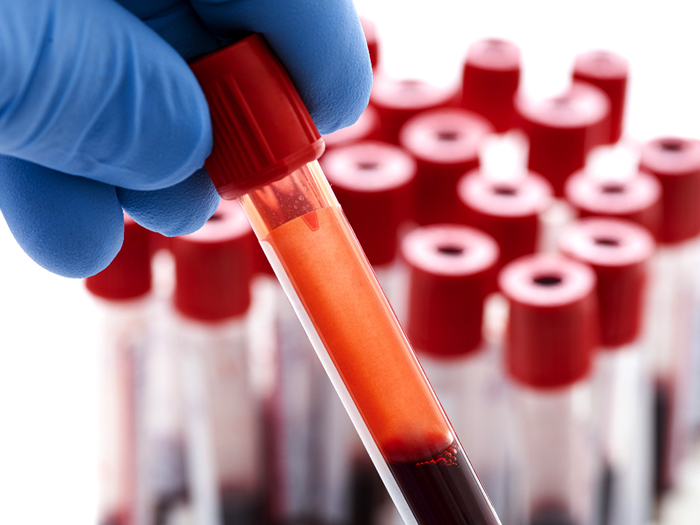How Often Should I Have My Cholesterol Checked?
The answer depends on your health history. Here’s what you need to know.

Cholesterol gets a bad rap, but it’s essential to your health. Your body needs cholesterol to perform important functions like building new cells. It also insulates nerve cells and helps your body produce vitamin D.
But as with many things in life, you can have too much of a good thing. And because high cholesterol can harm your heart and entire circulatory system, it’s vital to stay at healthy levels.
What Exactly Is Cholesterol?
Cholesterol is a waxy, fatty substance that’s carried through the bloodstream by two types of particles: low-density lipoproteins (LDL) and high-density lipoproteins (HDL).
LDL is often called “bad” cholesterol. Its job is to take cholesterol to work—to the cells in your body’s tissues—but it’s so light that it can get stuck in the arteries along the way, which narrows them and raises your risk of heart attack and stroke.
HDL, which is heavier than LDL, is considered “good.” Its job is sanitation: It captures excess cholesterol from your arteries and carries it to the liver, where it can be broken down.
So How Often Should You Get Checked?
The American Heart Association (AHA) recommends all adults get their cholesterol checked with a simple blood test at least every four to six years. But cholesterol levels tend to rise with age, so your doctor might want to test you annually, even if numbers were okay in the past.
“If you already have high cholesterol or if you have other cardiovascular disease risk factors like high blood pressure, your doctor will certainly want you to get tested at least annually,” says Jennifer H. Haythe, M.D., codirector of the Women’s Center for Cardiovascular Health at Columbia University Medical Center and a cardiologist at New York-Presbyterian Hospital.
What Do Your Results Mean?
Your test results should include three numbers: total cholesterol, LDL, and HDL.
You’ll want to pay attention to all numbers and consider them in light of your other heart disease risk factors—such as family history, being overweight, diabetes, and smoking.
The AHA recommends talking to your doctor about your cholesterol numbers and how it affects your health, since he or she is likely aware of your health history.
In general, the National Heart, Lung, and Blood Institute recommends the following targets:
- Total cholesterol: 125 to 200 mg/dL
- LDL cholesterol: Less than 100 mg/dL
- HDL cholesterol: 40 mg/dL or higher for men and 50 mg/dL or higher for women
What Healthy Steps Can You Take?
If your total or LDL cholesterol is high, your doctor will likely recommend lifestyle changes, especially dietary ones. Most important is to cut back on saturated fat, which are found in butter, cheese, red meat, and other animal products. You’ll also want to cut back on trans fats in packaged goods that list “hydrogenated” or “partially hydrogenated” oils among the ingredients.
“Strong evidence indicates that saturated fat in the diet is associated with increased total and LDL cholesterol, and increased risk of cardiovascular disease,” says Ginger Hultin, R.D.N., a Seattle-based dietitian and spokesperson for the Academy of Nutrition and Dietetics.
Less than 10 percent of your calories each day should come from saturated fats, according to the 2015 Dietary Guidelines for Americans. To lower cholesterol, the AHA recommends limiting to 6 percent of your daily calories.
Subscribe to our newsletter
It's quick and easy. You could be one of the 13 million people who are eligible.
Already a member? Click to discover our 15,000+ participating locations.
Follow Us
If you’re overweight, “losing about 5 to 10 percent of your weight can significantly reduce blood cholesterol,” says Amgad N. Makaryus, M.D., an associate professor at Hofstra Northwell School of Medicine and chairman of cardiac care at Nassau University Medical Center. For someone who is 200 pounds, 5 percent is 10 pounds.
For more lifestyle changes proven to help, check out our guide to eight things you don’t know about cholesterol.
If lifestyle changes don’t turn out to be enough—some people are genetically predisposed to high cholesterol—you may need medication, such as a statin.
As always, talk to your doctor to help determine the best treatment plan for you. For tests and medications, check with your health plan about benefits, and learn more about Medicare coverage here.
Check Your SilverSneakers Eligibility Instantly
SilverSneakers members can go to thousands of gyms and fitness locations across the nation, plus take SilverSneakers LIVE online classes that are designed for seniors of all levels. If you have a Medicare plan, it may include SilverSneakers—at no additional cost. Check your eligibility instantly here.
Not eligible for SilverSneakers? You can still get 200+ free SilverSneakers On-Demand videos and stay in touch with us by creating your online account.




